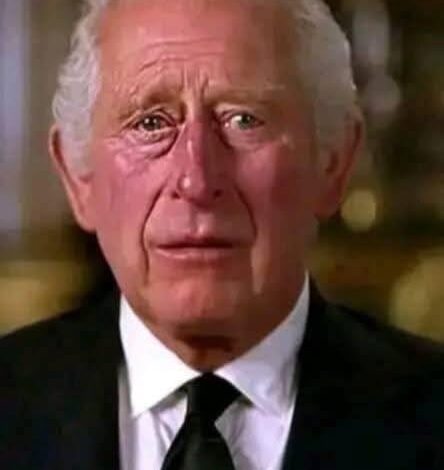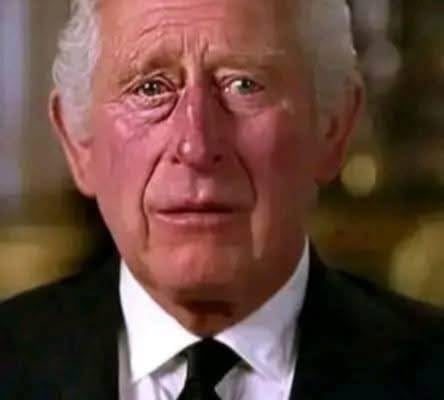
It is with profound sadness that we share the heartbreaking news of the passing of King Charles, a man whose reign embodied dignity, wisdom, and unwavering dedication to his people. His death marks the end of an era defined by resilience and purpose. For decades, he carried the immense weight of the crown with humility and grace, proving that leadership is not about power, but service. His loss has left a void that feels both personal and historic, echoing through every corner of the nation and beyond.
From the earliest days of his rule, King Charles was more than a monarch—he was a constant presence of stability in a world that often seemed uncertain. He inherited the throne at a time of immense transition and managed to bridge tradition with progress, guiding his country with an open mind and an empathetic heart. His advocacy for environmental protection and sustainability was far ahead of his time, transforming public attitudes and inspiring global action. What was once viewed as a royal hobby became a movement—his movement—urging governments, industries, and ordinary citizens to take responsibility for the planet’s future.
Beyond politics and ceremony, King Charles was known for his humanity. Those who met him described a man deeply engaged with the lives of others. He listened—truly listened—to the struggles of the people he served. Farmers, artists, scientists, and young entrepreneurs all found in him a patron who cared not for prestige, but for progress. His charities gave opportunities to those who had none. His initiatives built bridges where there had been divides. And even in the face of criticism, he never wavered from what he believed was right.
Those close to him often said that the King’s greatest strength was his sense of duty. He never saw the crown as a privilege but as a lifelong commitment—a promise to serve his people until his final breath. Every speech he gave, every appearance he made, carried that unmistakable sincerity that defined him. He was the kind of leader who could speak with heads of state one moment and share tea with a schoolchild the next, treating both with the same warmth and respect.
Yet, behind the public image of the monarch stood the man—Charles the father, the husband, the friend. Those who knew him personally spoke of his wit, his sharp humor, and his deep curiosity about the world. He had a passion for art and architecture, for gardening and music, finding joy in the quiet moments away from the spotlight. To his family, he was not just the King, but a source of comfort and strength, someone who believed that kindness was a greater force than authority.
The news of his passing has sent waves of grief throughout the world. Flags fly at half-mast, cathedrals are filled with silent prayers, and streets once bustling with life have fallen into solemn reflection. Messages of condolence have poured in from every continent, from world leaders and ordinary citizens alike, all expressing a shared sense of loss. His death is not merely a national tragedy—it is a global one, a reminder of how deeply one person’s life can touch millions.
In this time of mourning, many have reflected on the lessons King Charles leaves behind. He taught that leadership is rooted in empathy, that progress requires patience, and that love for one’s country is best expressed through service, not status. His reign was not without challenges or criticism, but even his detractors could not deny his devotion to the people and causes he championed. He understood the complexity of modern life, the tension between tradition and innovation, and managed to navigate both worlds with rare balance.
The legacy he leaves is vast. His environmental work changed the conversation around climate responsibility. His social programs lifted countless individuals out of poverty. His approach to monarchy redefined what it meant to be royal in the modern age—less distant, more human, and deeply connected to the people. Even in his later years, he continued to advocate for compassion and global cooperation, reminding the world that humanity’s greatest strength lies in unity.
But perhaps what people will remember most is not his achievements, but his presence. The calm steadiness in his voice during times of crisis. The sincerity in his eyes when he spoke of hope. The rare humility in a man of such stature. He made people believe in the possibility of goodness in leadership, in the idea that power could coexist with principle.
As the nation prepares to bid farewell, there is a collective sense that something irreplaceable has been lost. In every palace hall and every village green, his absence is felt. Yet amid the grief, there is gratitude—for his years of service, for his courage, and for the example he set. Monuments will be built and tributes will be written, but his true legacy will live on in the actions of those he inspired.
To those who knew him personally, he will be remembered not only as a king but as a man of compassion and depth. To those who never met him, he will remain a symbol of integrity and endurance. His life was proof that leadership grounded in empathy can change the course of history.
As we come to terms with his passing, the world pauses—not just to mourn, but to reflect on the values he championed. He believed in responsibility, in stewardship of the Earth, in the quiet power of kindness. Those beliefs, carried forward by generations to come, will ensure that his spirit never truly fades.
Though King Charles is no longer with us, his influence endures. It lives in the forests he fought to protect, in the lives his charities transformed, and in the renewed faith of a people who saw in him not perfection, but purpose. His reign may have ended, but his example remains—a guiding light through uncertain times.
In the days ahead, as tributes fill the air and history books begin to record his life’s story, one truth will stand out: King Charles was not just a monarch; he was a man who loved his people and his planet with all his heart. His memory will not fade—it will grow, carried forward by those who continue the work he began, and by those who, in mourning him, are reminded of what true leadership means.



